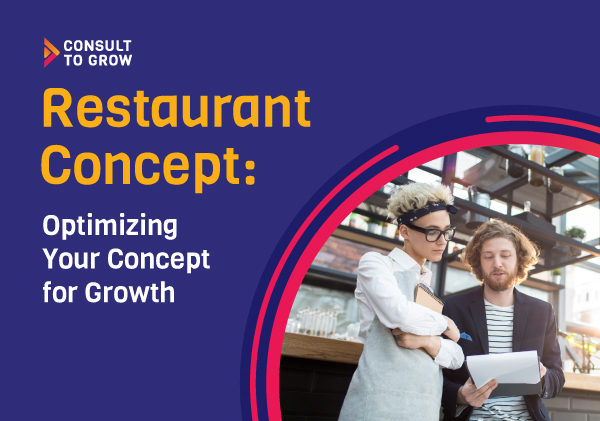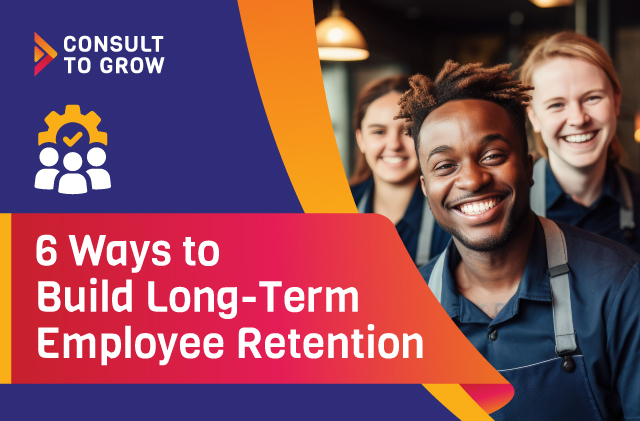
Restaurant Concept: Optimizing Your Concept for Growth
Are you creating a restaurant concept from scratch or scaling an existing one? Either way, clarity and alignment around your concept with your partners and

This guest post is contributed by Sandra Dyeak, Owner of The Events Project.
The restaurant business is risky. You purchase food, hire staff, pay your bills, and must be prepared for whatever comes your way each day – whether it is a full dining room or an empty one, whether guests order steak and wine all night or simply camp out over a few appetizers.
On the other hand, private events are safe. You know ahead of time exactly how much food to prepare, how much staff to schedule and the amount of revenue you will bring in for the day. You are ensured a profit. There is no doubt about it – producing events at your restaurant is a good business strategy.
So, how do you get started? With a functioning restaurant you already have 90% of the work done to produce the event. All you need is the other 10% – a program that is built in a way that you can easily book with clients and seamlessly execute with your staff. Get started with these four steps:

This is the cornerstone of your program. When a guest arrives at your restaurant, the first item they receive is a menu – it is a list of instructions and options for what your restaurant offers them within the regular dining experience. Your event sales packet offers the same instructions, but for a private dining experience. It must be a beautifully designed marketing document that represents your brand and sells the special experience of your restaurant. It must also present tangible information including specific private dining spaces available for rental, seating capacities, private dining menu options, and policies for booking in your establishment.
Consider what most diners experience your restaurant while they are physically in the space – the ambience, the service, the food. Your event clients are researching online, from their desks, so you need to sell them on the experience of your restaurant in a format that they can view on their computer or phone.
In addition to being a sales document, the Event Sales Packet also creates a framework for the event program that you want to run. It solidifies the event spaces in your restaurant, provides a chart for food and beverage minimums and room capacities. It also helps you narrow down the most popular menus that your staff can consistently produce and serve successfully in large quantities. Once you have those details figured out, there is no need to reinvent the wheel each time you get a new event inquiry.
You know how to run a restaurant, but you don’t necessarily know how to run an event. You have all the nuts and bolts in place, but you need a list of standard operating procedures tailored specifically to your restaurant to ensure you are consistently producing successful events.
Think about each step during the life of the event. What will your standard operating procedures be for each of these steps? You might consider how you want the host stand to handle event inquiries or how often to schedule event staff meetings. You should think about your brand standards for event setup and how food will be fired in the kitchen. How are event charges rung into the POS and how does your accounting team want to see these charges?
I highly recommend that you create this manual and then review it with key staff members (non-managers). Those who are in the trenches every day will often have valuable insights into the operational success of event plans. Additionally, review the document six months later. Quite often, we find better ways to operate after we’ve been doing it for a while. Be open to adjustments. The most important part of this manual is that it works for everyone.
You have a client that wants to book an event in your space. What do you do next? You need to have a system in place that keeps track of your leads, helps you write consistent contracts, and easily communicates event information to both your client and your staff. Once you have a system in place, you will book faster, your clients will be happier, you will have more time on your hands and more revenue in your pocket.
Where to start? First, you will want to keep your leads organized. This way, you can follow-up regularly and not lose them in the black hole of your inbox. A good booking ratio is 20% – so don’t be discouraged if you don’t book every inquiry. There are a million reasons why your restaurant may not be the right fit for them. If you can find out their reasoning for not booking that can be a huge help. For those who don’t book, add them to your mailing list.
Next, set up a calendar. This should be accessible to all your managers (FOH & BOH). The calendar should include all events on your radar. Having events in the calendar ensures (1) you do not double book a space and (2) your management team has the event information for planning purposes.
Create your contract. In addition to listing all the event details you are promising to fulfill, you are creating the proper expectations for your client. The contract should clarify not only the menu, but the food and beverage minimum spend requirement as well as additional charges the client should expect like service charges, sales tax, labor charges, etc. This is also where you list your terms and conditions – crucial financial and legal protection. Consider adding clauses about payments and deposits, due dates for final guest counts, split checks, and a cancellation policy.
This is the point in the process that takes a lot of detailing and follow-up. Quite often, this duty falls on a general manager that has too much on their plate and does not possess the right skills or time to devote to the task. As a result, details get missed and sales are lost. Running a successful event sales program requires a lot of dedicated time on the computer and phone. You want your managers on the floor overseeing service, not buried in emails. And when was the last time your managers were able to have a full conversation without being interrupted 8 times?
A good Event Sales Coordinator will thoughtfully manage the client’s experience through the booking process, listening to their needs, fulfilling requests quickly, and providing accurate expectations. People work with people, not businesses. This coordinator is the person that will build relationships with your clients. Repeat business will develop because clients have built that relationship.
Select a person that is skilled on the computer and comfortable speaking to clients, projects a professional image, obsessively detail-oriented, understands the operational abilities of the staff, and can interpret the financial impact that an event has on your company. Select a person that can think from the point of view of both the client and the restaurant staff to negotiate a successful outcome for all. Find this person, give them the tools, and let them run. Your P&L will thank you.
***
Sandra Dyeak, CMP is an events industry veteran with over 20 years of experience and a “make it happen” reputation. She has built her experience by managing events for a large convention center in Houston and then her own event company in Los Angeles. Now in Dallas, she has built structured restaurant event programs at Sissy’s Southern Kitchen, Lisa Garza Taste Studio, Shelby Hall, Hilton Garden Inn, Cane Rosso Restaurants, Cane Rosso Mobile Pizza Oven, Zoli’s Pizza, The French Room, City Hall Bistro, The Pool at The Adolphus, Ferrari’s Italian Villa & Chop House, and José.
Sandra is also the Immediate Past-President of the MPI (Meeting Professionals International) D/FW Chapter. She has earned the 2019 Special Event of the Year Award, 2020 Rising Star of the Year Award, 2021 President’s Award and the 2023 Overall Chapter of Excellence Award. In 2021, Sandra earned her Certified Meeting Professional designation (CMP) from the Events Industry Council. Currently, Sandra owns The Events Project: a restaurant event consulting firm specializing in creating and managing event programs for restaurants. If you would like to learn more about building an event sales program for your restaurant please feel free to reach out to Sandra here.

Are you creating a restaurant concept from scratch or scaling an existing one? Either way, clarity and alignment around your concept with your partners and

How do you know when a relationship has run its course? As the guest of Jason Lauritsen on his podcast, Better Relationships: Better Work, I

How do you build a world of work where your company’s employee retention is much higher and longer? I’ve been asking myself this question since